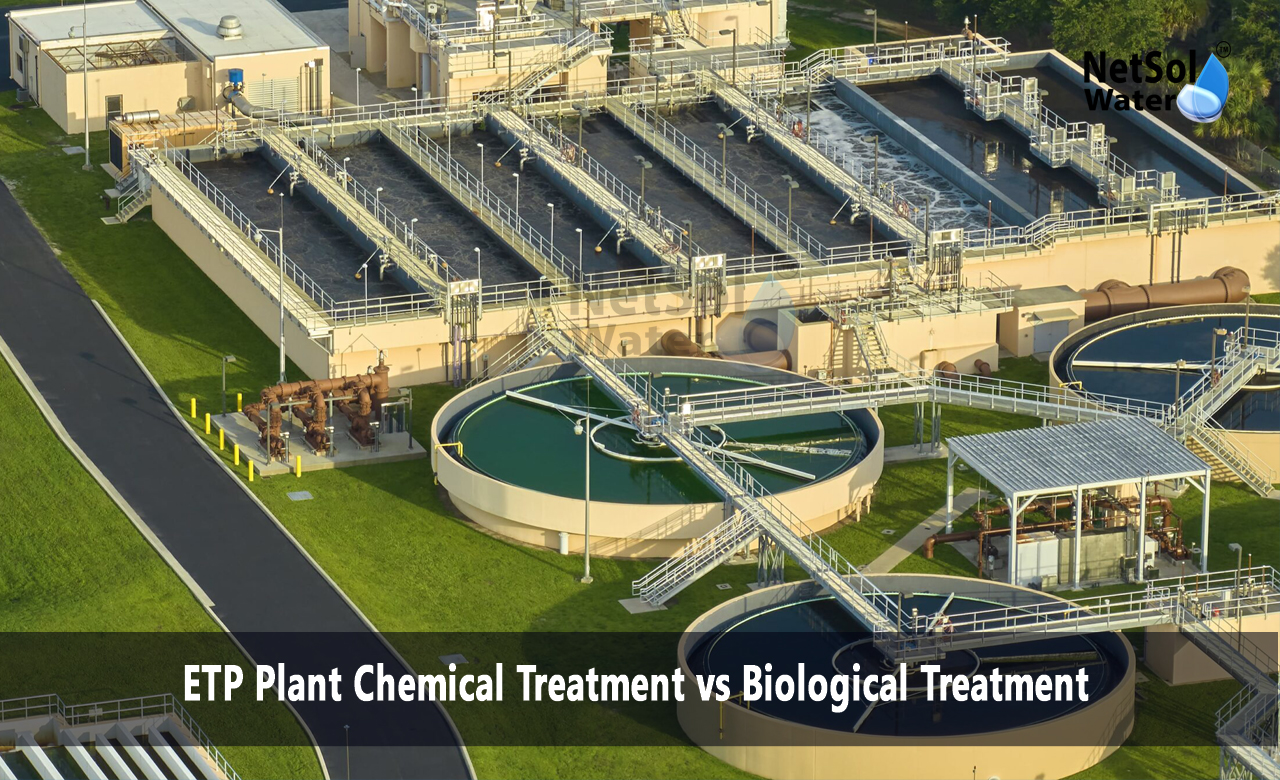What is Difference Between Biological and Chemical Treatment in ETP?
Industries face complex challenges when treating their wastewater. Your choice between chemical treatment and biological treatment in Effluent Treatment Plants (ETP) will determine how effectively you manage water. We walk you through both methods to help you select the right approach for your needs.
Water treatment experts actively discuss how chemical and biological treatment methods serve different purposes. Each method brings specific benefits to different types of industrial wastewater. Your selection will affect your treatment success operational costs and environmental impact. When you understand these methods you can make better decisions about your wastewater management system.
We take you through every important aspect of both treatment methods. You will discover how they work, where to use them and what factors affect their performance. This information will guide you to choose the method that matches your specific needs.
Chemical Treatment in ETP Systems
Chemical treatment actively changes wastewater through specific chemical reactions. You add particular chemicals to eliminate pollutants and contaminants from industrial wastewater. These reactions change how waste materials behave making them easier to extract from water. Let us explore what makes chemical treatment work:
Chemical Treatment Process Steps
Chemical treatment follows clear steps to clean your water. You start by adding coagulants which break down suspended particles in the wastewater. These particles join together to create larger groups called flocs. The flocs become heavy and sink to the bottom where you can remove them easily.
You then add pH adjustment chemicals to create perfect conditions for removing pollutants. The water moves through several tanks where different chemicals work on the contaminants. Each step focuses on removing specific types of pollution from your wastewater.
Types of Chemicals Used
Different wastes need specific chemical solutions. You might use aluminum sulfate ferric chloride or special polymer-based coagulants. Each chemical plays a unique role in cleaning your water.
You use neutralizing agents to control pH levels and oxidizing agents break down organic materials. The wastewater type and your treatment goals determine which chemicals you need. Modern treatment plants also use advanced oxidation techniques to handle complex industrial waste.
Applications and Benefits
Industries with high metal content in their wastewater see excellent results with chemical treatment. This method excels at removing suspended solids and unwanted colour. You can treat water faster than biological methods making it perfect for industries that need quick solutions.
Chemical treatment handles unexpected changes in wastewater composition without problems. Industries with changing production schedules and waste types find this flexibility valuable. You need less space compared to biological treatment which helps facilities with limited area.
Exploring Biological Treatment Methods
Biological treatment puts living organisms to work cleaning your wastewater. This natural approach uses bacteria and other microorganisms to purify water. These tiny helpers transform organic pollutants into harmless basic substances. Let us see how biological treatment transforms your wastewater:
Working Mechanism
Microorganisms consume organic matter in your wastewater. They turn complex organic compounds into simple elements like carbon dioxide and water. You create controlled environments where these helpful bacteria thrive and clean your water.
You maintain specific conditions including temperature oxygen levels and nutrients. These conditions help the beneficial bacteria work at their best. This process copies nature's cleaning system but works much faster.
Types of Biological Systems
You can use aerobic systems, which need oxygen-loving bacteria to clean waste. These include activated sludge processes and trickling filters. Different systems match different wastewater types and treatment needs.
Anaerobic systems work without oxygen to clean your water. They handle strong organic waste particularly well. These systems create biogas which you can use for energy. Modern plants often combine both systems to achieve better results.
Sustainability Aspects
Biological treatment leads the way in environmental protection. You use fewer chemicals and create less chemical waste. The process generates valuable materials like biogas and nutrient-rich soil.
You spend less money operating these systems over time. The process needs minimal chemicals and works naturally. Industries choose biological treatment because it protects the environment while cleaning water.
Comparing Performance Factors
Several factors will influence your choice between chemical and biological treatment. Each method brings strengths and faces limitations that affect how well it works for different uses. Let us examine what affects their performance:
Treatment Efficiency: Chemical treatment removes pollutants fast. You see immediate improvements in water clarity and cleanliness. This method handles sudden wastewater changes effectively.
Biological treatment takes more time but cleans more thoroughly. You remove dissolved organic matter more effectively. The process adapts as your waste changes over time.
Operating Costs: Chemical treatment requires ongoing chemical purchases. You need storage space and regular supply deliveries. The process creates more waste which costs more to dispose of.
Biological treatment costs more to start but saves money later. You need fewer supplies to keep it running. The process makes less waste and creates useful products.
Space Requirements: Chemical treatment fits in smaller spaces. You use compact equipment and tanks. This works well in city areas where space costs more.
Biological treatment needs more room. You must provide space for bacteria to grow and multiple treatment stages. However new designs help you use space more efficiently.
Take the Next Step in Your Wastewater Treatment Journey
Your understanding of ETP chemical and biological treatment methods empowers you to make smart choices. Each method serves different industrial needs effectively. The method you choose shapes your treatment success and running costs.
Do you want to know which treatment method fits your needs? Our water treatment experts will help you today. We analyze your needs and show you the most effective solution for your facility. Connect with us to build an efficient sustainable wastewater treatment system.
Contact Netsol Water at:
Phone: +91-965-060-8473, Email: enquiry@netsolwater.com



